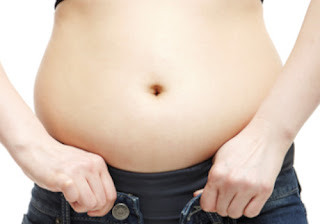How to Get rid of a Bloated Stomach Fast Naturally

Have you ever felt discomfort and feeling of fullness after eating? It is because of gas formation which causes enlargement of the abdomen. The bloated stomach tightens your clothes and can be painful. Read about how to get rid of a bloated stomach fast and what you can do to treat them.
In most instances, the bloated stomach is not a disease condition, and simple home remedies can correct it. Firstly, identify whether you have a bloated stomach, the signs of which include-
Bloating Symptoms
- Constipation
- Feeling of fullness
- Loss of appetite,
- Heartburn,
- Stomach pain, and
- Discomfort
Food, alcohol, and lack of sleep are the common causes of stomach bloating. It’s a natural process to form gasses in the stomach after consuming gas-producing ingredients.
What Causes Bloating
- The common food which is composed of Broccoli and other cruciferous vegetables, beans, lentils, onions, barley, etc
- Carbonated drinks
- Chewing gum
- Constipation
- Smoking
- Liver disease
- Food and carbohydrate malabsorption
There can be various methods of rectification with which bloating can be prevented, like maintaining water balance in the body (hydration), improving gut microbiota, anti-inflammatory agents, muscle relaxants, a high fiber diet, etc.
Take necessary measures to prevent the bloated stomach. Simple adaptations in dietary habits such as gluten-free diet, lactose-free diet, etc., and lifestyle changes can help prevent gas formation in the first place.
How to Get rid of a Bloated Stomach Fast

What to do for a bloated stomach read here to know more-
1. Lemon Water
Hydration helps in removing sodium and excess water, preventing the feeling of bloated. When lemon juice is added, it has a positive impact on the digestive tract providing soluble fiber.
Fiber prevents constipation and, in turn, gaseous distension. Lemon use is a diuretic that can regularly flush out water and toxins and provide relief from a bloated stomach. The tasty lemon juice is a healthy, nutritious choice to be hydrated and fight to bloat.
HOW TO USE
Squeeze half lemon in water and drink it. You can also add honey for taste.
2. Peppermint Tea
This herb is commonly available in houses as a condiment added to food. The peppermint extract is composed of menthol and menthone. These two ingredients aid digestion and stimulate the secretion of juices.
Peppermint tea possesses antispasmodic properties as well. You can also opt for peppermint as it soothes the intestines, relieves abdominal pain, and reduces bloating.
HOW TO USE
Add peppermint essential oil in hot water or use herbal tea and enjoy its soothing and calming effects.
3. Fennel Seeds
How to get rid of bloating with fennel seeds? People who often experience bloating can stock some fennel seeds and eat them after meals. The fennel tea is rejuvenating! Look for a herbalist for fennel oil or even a fennel supplement.
The essential fennel oil helps to reduce gas, bloating, and stomach cramps. It is a natural diuretic. Fennel oil also possesses anti-inflammatory and antibacterial properties.
Fennel is rich in fiber which relieves constipation and prevents the formation of gas. It relaxes and soothes the intestinal muscles to relieve gassiness.
HOW TO USE
Fennel seeds can be eaten as it is. In case you are lazy to chew fennel, you can also have fennel tea.
Add whole or crushed seeds in a cup of water and let it boil for 10 mins; a delicious drink is ready!
4. Ginger
It is traditionally known for its valuable medicinal properties. Ginger is composed of gingerols and shogaols. It possesses a potent anti-inflammatory that relieves inflammation of the stomach lining and protects the stomach.
Ginger has a carminative property that reduces gas, produces muscle relaxation, and prevents bloating.
HOW TO USE
Many may not like its raw pungent taste, but the raw form of ginger has medicinal value, but if you don’t like its taste, you can also make ginger tea. Ginger tea can be made by adding thin slices of ginger to a cup of water and boiling for 10 mins.
You can make this drink tasty by adding honey and lemon, increasing its effectiveness to prevent and treat bloating. If you do not want to eat or drink ginger, you can get ginger capsules from the nearby pharmacy.
5. Ripe Banana
How to cure a bloated stomach fast with ripe banana? Banana is a rich source of fiber that aids in digestion and bowel movements. The high potassium content helps in balancing and preventing water retention and hence prevents the feeling of bloated.
Only ripe bananas are rich in potassium. The pre-biotic fiber of ripe bananas can help in improving good bacteria and improve digestion. Researchers advise the intake of bananas before meals can prevent bloating.
HOW TO USE
The effects of unripe banana and ripe banana will be the opposite, so make sure you opt for a ripe banana.
6. Get rid Bloated stomach with Probiotics
The gut microbes play an important in maintaining a healthy digestive tract. The beneficial microbe prevents the colonization of harmful bacteria and can cause abdominal discomfort, cramps, and bloating.
Lactobacillus acidophilus, Lactobacillus reuteri, and Saccharomyces boulardii maintain healthy gut microbiota and reduce gas production.
At home, you can find yogurt and buttermilk, which support gut health and helps in relieving gas, and supports digestion.
Yogurt and buttermilk are composed of Lactobacillus and Bifidobacterium, which prevents the sticking of harmful bacteria to the gut. Both yogurt and buttermilk are easily digestible.
HOW TO USE
Consume yogurt or buttermilk as it is, and you can also find sachets of probiotics from a pharmacy. The sachets can be dissolved in water to drink.
You might be interested in: Activities to Avoid During Period
7. Turmeric
Turmeric is composed of vitamins, minerals, anti-inflammatory compounds, antioxidants, and fiber. The fiber in turmeric helps balance acid production, muscle movement, and nutrient absorption.
Turmeric is an effective remedy for bloating as its components help combat bloating by different methods. If you have a bloated stomach due to fattening or spicy foods or alcohol, turmeric’s anti-inflammatory and antibacterial properties can help in alleviating it.
The magnesium and potassium help to maintain fluid balance. This household herb is composed of curcumin; it prevents acid and bile overproduction alleviating pain. Turmeric nurtures good bacteria and eliminates harmful bacteria.
The health benefits of turmeric are well-known and are widely adapted the method to consume it. Turmeric can also be added to a glass of juice. Turmeric can be your best partner not only to get relief from flatulence but also to aid digestion. Turmeric works on rectification measures of acid production.
If left untreated, Bloating can result in pain or pressure in the chest, breathing difficulty, vomiting, high heart rate, etc.
If you often experience a bloated stomach, have a stock of lemon to make quick lemon juice, or if no mood for juices, you can make fennel, peppermint, or ginner tea.
Golden milk (Turmeric milk) is also an effective option. Take measures to control the bloated stomach as soon as you see the initial symptoms. Adopt healthy eating habits and physical activity to stay healthy!
Frequently Asked Question & Answers-
Q. What’s the best way to get rid of bloating?
Ans. 1. Don’t eat enough at a time
2. Don’t Eat gas forming foods.
3. Try to avoid constipation.
4. Kindly take probiotics
5. Switch sodas with water
6. Go for a walk
Q. Why does my stomach always feel bloated?
Ans. Bloating happens mostly during or after a meal. The most prevalent cause of bloating is overeating. Bloating may frequently produce abdominal pain, discomfort, and a feeling of fullness.
Q. When should I worry about bloated stomach?
Ans. When you experience persistent severe stomach bloating or other problems like diarrhea, constipation, loss of weight, or blood in the stools then consult your doctor immediately.
Q. What foods stop you from bloating?
Ans. Some research indicate that Oats, green tea, cucumber, ginger, apple, pineapple, papaya, Bananas, parsley and probiotic-containing yogurt (good bacteria) may help to a reduce in stomach bloating.
Q. What are the worst foods for bloating?
Ans. Foods that are common to cause bloating are beans and legumes, carbonated beverages, onions, dairy, sweeteners, and cruciferous vegetables like broccoli, cauliflower, cabbage, kale, arugula, and Brussels sprouts.
So, friends, we hope that going through the above how to get rid of a bloated stomach fast will surely help you. So please don’t delay taking the benefits of it.
Don’t miss
- Remove skin tags at home
- Coriander tea for thyroid
- How to pass a kidney stone
- Ginger water for weight loss
References
- “Pathophysiology, Evaluation, and Treatment of Bloating”– Ncbi.nlm.nih.gov
- “Gas and Bloating” – NCBI
- “Remedies for Bloating”– WebMd
- “Beat the bloat” – Nhs.uk
- “Belching, gas and bloating: Tips for reducing them”-MayoClinic





